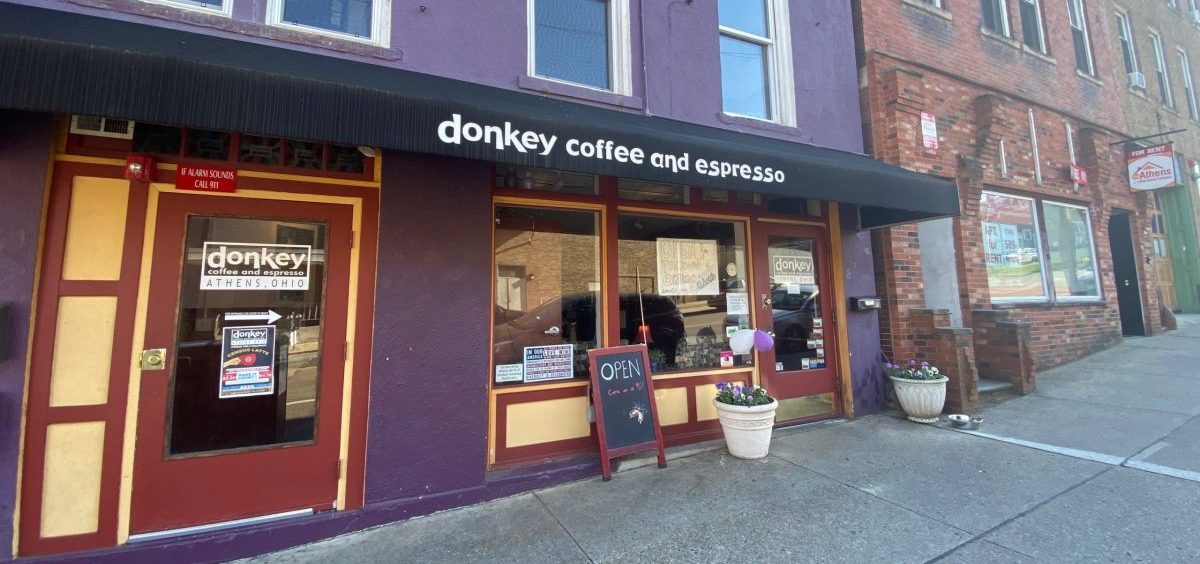
Trying to Stay Afloat: Small Businesses in Rural SE Ohio Cope with a Pandemic
By: Elise Hammond | Taylor Bruck
Posted on:
ATHENS (WOUB) – The coronavirus pandemic has changed the way we interact with one another. Birthdays are celebrated on video chats, and suspicious glances are exchanged when someone gets too close at the grocery store. We are told to stay in our homes and away from each other.
But as life is put on pause, local business owners are trying to stay afloat.
There have been more than 14,000 cases of coronavirus in Ohio as of April 23, 2020 according to the Ohio Department of Health and millions of people across the United States are out of work.
Lacy Jo Fletcher is one of those people. She is a hair stylist at Station Street Hair Designs in Athens and has been doing hair for the past three years.
“I am 32 and lived here my whole life, I have two kids and a husband,” Fletcher said.
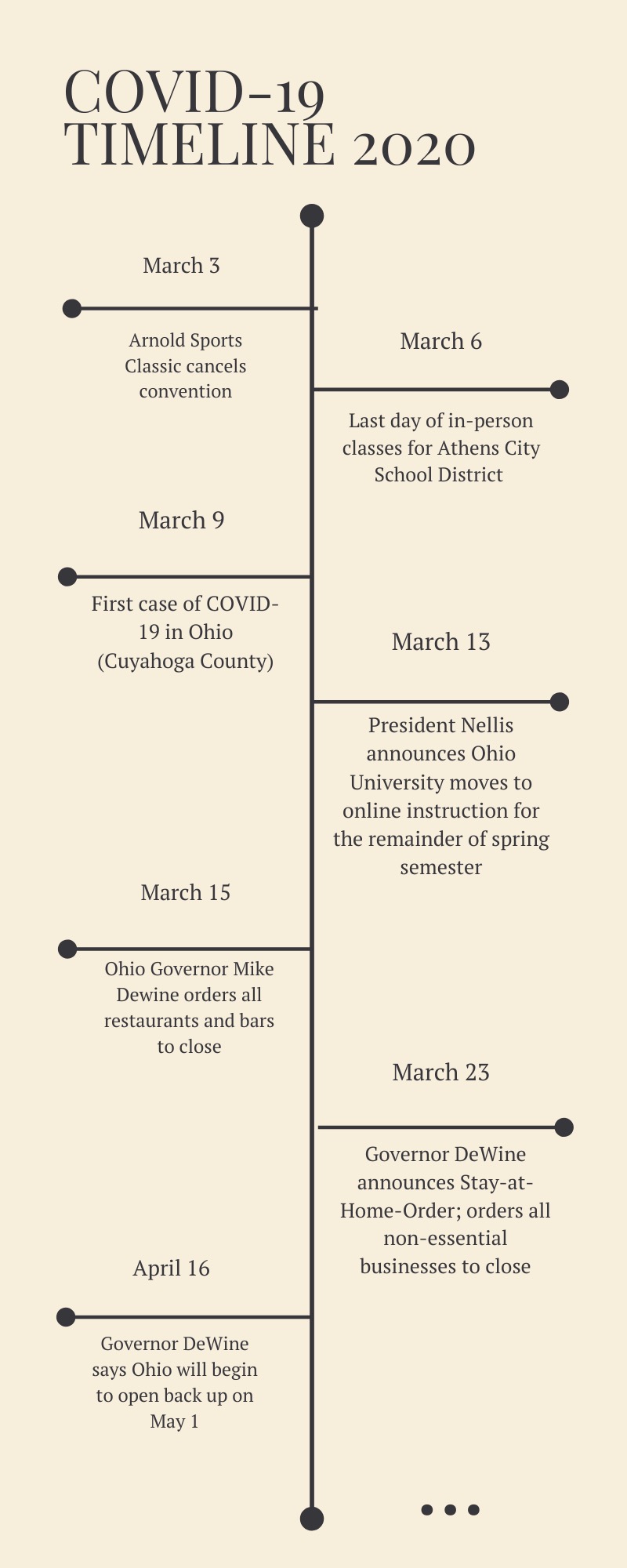
Ohio Governor Mike DeWine directed all non-essential businesses to close on March 23 as part of the stay-at-home order, meaning Fletcher was out of a job. She said the announcement that her salon was closed came as a surprise to her.
“We didn’t even know until a client had told us that we had to be closed,” she said.
Many hair stylists and tattoo artists, like Fletcher, are considered independent contractors, or self-employed. At Station Street Hair Designs, Fletcher pays a percentage of her earnings to the owner.
Because she is not considered a full employee of the salon, she is disqualified from receiving unemployment benefits.
“It was very all of the sudden,” she said. “There is no help for those people who are self- employed and for someone who has only done it for three years, I would have never dreamed of needing to purchase unemployment insurance,” she added.
According to the Ohio Department of Job and Family Services website, although independent contractors like Fletcher are not eligible for unemployment assistance typically, the new federal Pandemic Unemployment Assistance (PUA) program will provide up to 39 weeks of benefits to self-employed workers.
Fletcher said even if she wanted to get a job in another field to supplement her husband’s income while she waits for PUA benefits, child care is another challenge.
“My mother-in-law babysits and she’s got congestive heart failure and pulmonary hypertension, she’s at a really high risk if she would get this virus so it’s not really smart for me to look for work and expose her anymore than she would have to be exposed,” Fletcher said.
Weathering the Storm
Aside from having to lay off employees, small business owners are faced with their own set of challenges.
Donkey Coffee in uptown Athens has been around for 18 years. Co-owners Chris and Angie Pyle went to school at Ohio University, fell in love and ended up staying.
Since businesses have been forced to close, Donkey Coffee had to lay off 19 employees. Pyle said out of their normal 22 employees, only three are still working. In an effort to keep the payroll low, his family is working behind the bar, he said.
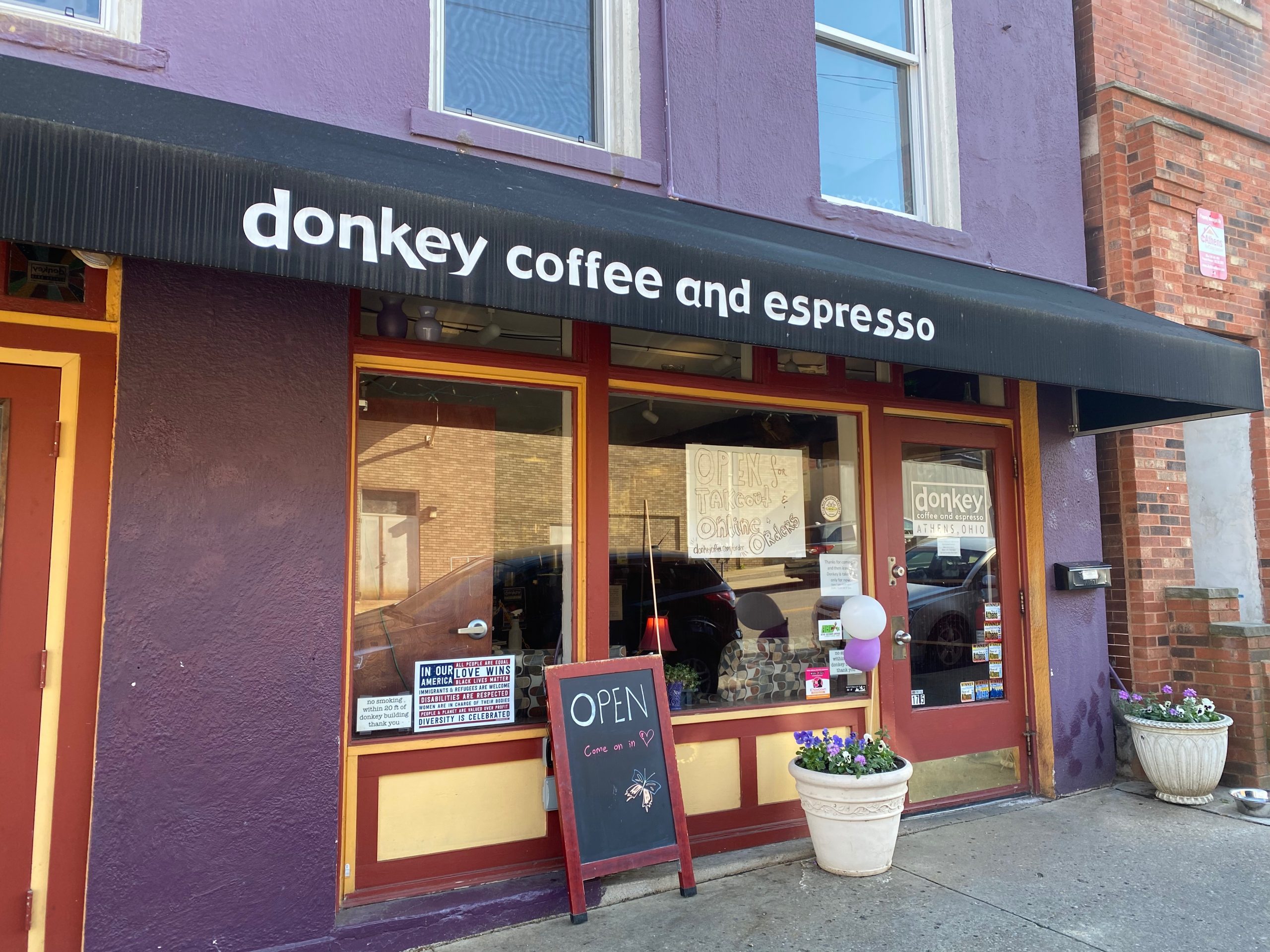
“We don’t pay ourselves so there’s probably a good chunk of money that we’re saving behind the bar by having our whole family work cause we’re, you know, not taking hours for that,” he said.
Pyle said he had to adjust his business practices to comply with the new social distancing and safety regulations. Donkey is now only offering takeout during adjusted hours, not keeping condiments out on the counter and wiping surfaces about every 10 minutes.
But despite these changes, some of the biggest challenges came from figuring out how to cut costs. Pyle said the coffee shop is not even making enough money to break even.
“We’d probably break even if we made another $200 to $300 a day,” he said.
Pyle said they have been using savings to get through, but if the closures continue for much longer, it might not be enough; they have already used about $10,000 of their savings in March.
But luckily, Pyle said he recently received a loan from the federal government as part of the Paycheck Protection Program – but even that will only last so long.
“We finally received our stimulus PPP loan so this has been a massive help. But it will run out by June 30 or sooner,” he said.
Pyle said a positive for Donkey Coffee is that they own the building where they’re located. He said this takes a lot of pressure off having to continue to pay rent even when there is not a lot of money coming in. The building also offers equity that he could use to get a loan in the coming months, he said.
“We’re kind of learning how to weather the storm and we’re learning a lot from that – how to function where we don’t have much money coming in at all,” Pyle said.
A Similar Story
Art Oestrike, the president of another well-known local restaurant in Athens, Jackie O’s Pub & Brewery, said business was “slashed” at the restaurant locations.
He explained what he meant by ‘slashed’ this way, “let’s say we usually do $100 a day, we’re doing about $12 a day, so business has slashed in terms of the restaurant.”
Jackie O’s sales are down about 33%, according to Oestrike. He said this is mostly because about 40% of the company’s beer goes into kegs that get sold to other restaurants and bars. But with all on-site bar and restaurant businesses closed, there is no need for kegs, Oestrike said.
Plummeting sales in Jackie O’s restaurants and kegs forced the company to lay off 80 employees, he said.
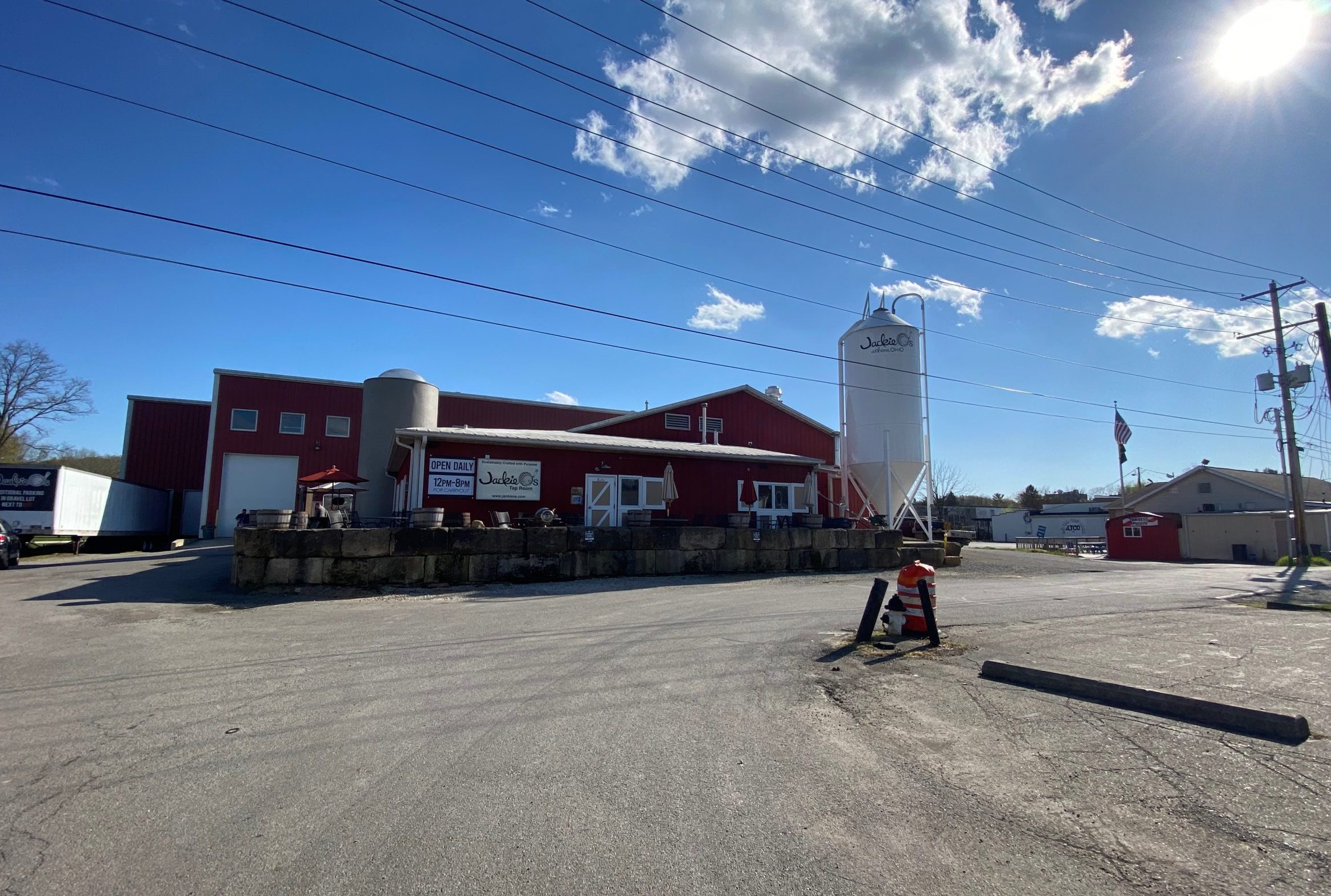
“We still have about 50 working and that number will unfortunately probably go down again before it goes back up,” he said.
One thing that is helping Jackie O’s stay in business through the pandemic is that their products are in grocery stores and retail locations across the state. Oestrike said one of the company’s beers, Mystic Mama, surprisingly saw an increase in sales in March.
“I think it’s because of the brand, it’s like comfort food. In a weird situation people want their comfort food and so Mystic has been doing well which is an interesting thing. I didn’t see that coming,” he said.
He said the retails sales is allowing Jackie O’s to survive for now, but Oestrike said everything is still uncertain.
“It’s going to keep the lights on but there’s still so much confusion because any day the governor or whomever could be like ‘hey shut it down.’ [If] the freeways are closed, you know, something like that and that would change those things real quick,” he said.
Even though the restaurant is losing money, Oestrike said he has a loyalty to both his employees and to the people in Athens.
Jackie O’s will stay open for now, he said.
“We are losing money hand over fist in our uptown location,” he said.
“The governor said restaurants please don’t all close because more than 50% of the food that people eat is not from the grocery store,” Oestrike said. “So I took that as a directive saying don’t close, figure it out and sell some food to people.”

Innovation to Survive
As businesses like Donkey Coffee and Jackie O’s modify their operations by doing things like offering take out only, other places are taking a more innovative approach to keeping the lights on.
Deanna Schwartz, co-founder of the West End Distillery in Athens, has pivoted her operation from making vodka and gin, to making a more essential type of alcohol – hand sanitizer.
She said the distillery started production in March after the Food and Drug Administration approved the facility.
“The process of making the sanitizer itself was just a matter of mixing the raw ingredients in a tank, transferring the finished recipe to kegs and filling and labeling bottles individually as we don’t have a bottling line,” Schwartz said in an email.
Schwartz said they follow a recipe required by the FDA and the World Health Organization. So far, the product has been in high demand and Schwartz said they will continue distilling as long as the ingredients are available.
“We had a decent supply of alcohol in stock two weeks ago when we started this new business, however, the demand has been far more extensive than we had accounted for and now affordable ingredients are becoming more difficult to find just over the course of one week,” her email said.
State and Local Resources
As business owners speculate how long non-essential closures will last, the City of Athens and the state of Ohio are trying to figure out how to help.
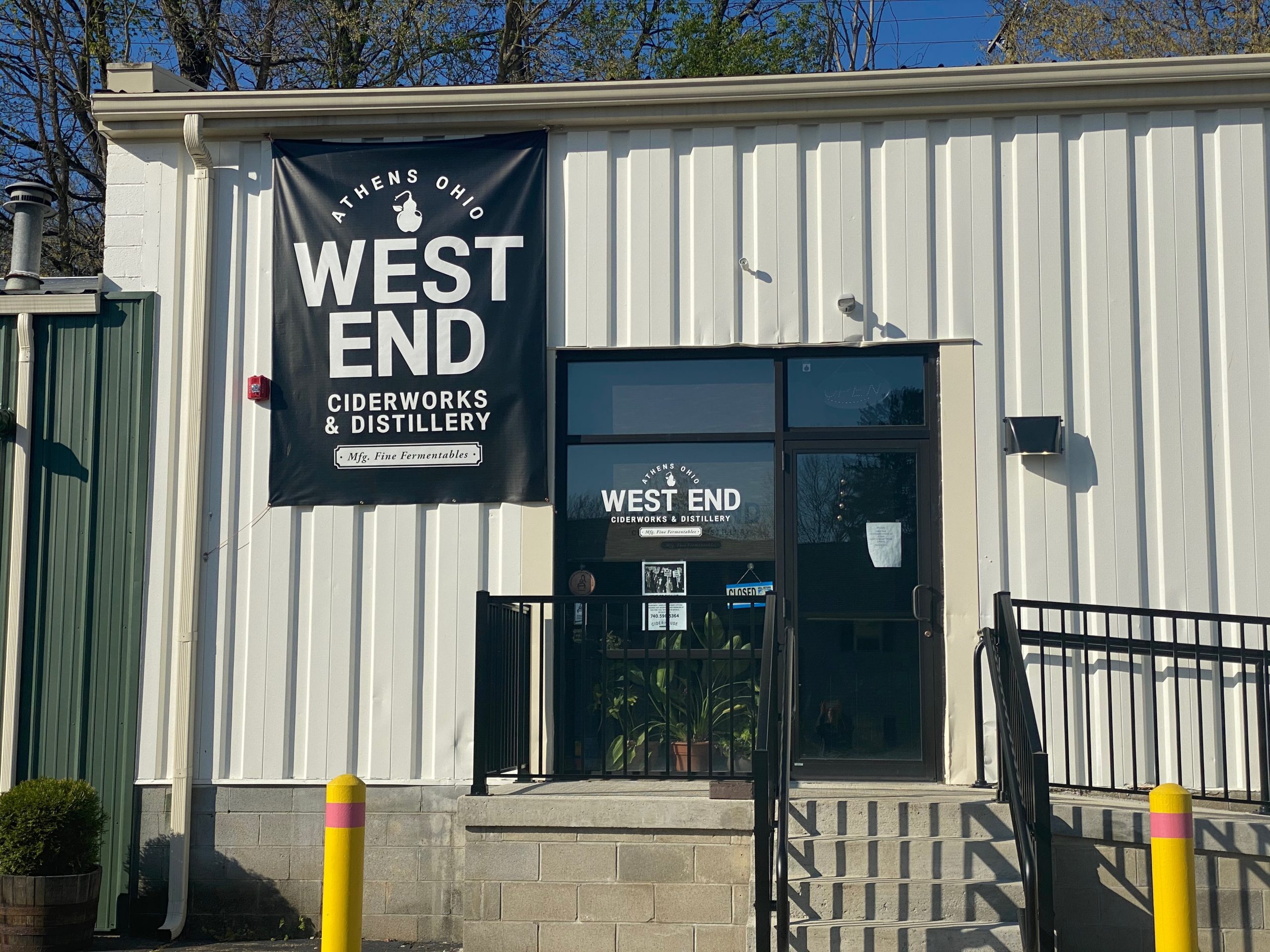
Sara Marrs-Maxfield, the executive director of the Athens County Economic Development Council, said the first key step in helping small, local businesses is to listen.
The Economic Development Council, in coordination with several other organizations, put out a survey to business owners to learn more about what struggles they are facing and what kind of aid would be beneficial.
“Our role, as well as different government entities’ roles at this point, would be to advocate on behalf of the businesses so that we are able to get a share of the resources that are being made available federally and statewide,” Marrs-Maxfield said.
The answers generated by the survey will help city officials at a statewide level negotiate relief packages or other resources that have stipulations or qualifications, Marrs-Maxfield said. Oftentimes rural voices are not as strong when it comes to consideration in the decision-making process in the statehouse, she added.
“The businesses in our communities add jobs in smaller numbers, but they’re just as valuable to our community. That payroll is valuable, that contribution that the company makes in taxes is valuable, and so same story here, we really need to make sure that the thresholds aren’t so high that our businesses cannot take advantage of those things,” Marrs-Maxfield said.
Dani Underhill, the president of the Athens Area Chamber of Commerce, is also helping facilitate the survey.
The role of the Chamber, she said, is not so much to advocate, but to provide information about where business owners can find resources they need. She said her organization will use the survey responses to streamline information that businesses need most.
“Putting out surveys like this gives us tools to best advocate for those businesses on the ground with what they need and [it’s] backed up by data. So it’s not just a perception of what they need, or a few select people being a voice, it’s coming from the businesses themselves,” she said.
She said the Chamber of Commerce had to pivot from helping businesses with marketing, to simply helping them get connected to resources.
“Right now some of those traditional things that chambers are known to do in terms of face-to-face networking and visibility or marketing are not really at the forefront of most of our businesses’ minds right now. But they are looking for resources and avenues to gather the information that’s pertinent to them when they need it,” Underwood said.
As they work to be a voice and a resource for Athens businesses, Underwood and Marrs-Maxfield both agree the coronavirus pandemic has forced everyone to work together.
Marrs-Maxfield said the Economic Development Council has been communicating frequently with anyone who wants to be “part of the bigger discussion,” such as the Athens County Visitors Bureau.
“We feel like if we’re speaking all with one voice, and are all working together, it’s going to be better for everybody,” she said.
Marrs-Maxfield said while this situation is tough for business owners, they can also use it as a learning experience. She said she thinks all businesses should have a basic disaster preparedness plan.
“I think that it would be silly if we didn’t take a look at this and use it as a model for change,” Marrs-Maxfield said. “I think that every negative experience can be used as a learning experience.”
The Start of Long-Term Change
With the business environment creating uncertainty and anxiety, business owners and employees are adapting, but also reflecting on how this pandemic could change a lot of things even after the economy reopens.
James Kisor, co-owner and artist at Decorative Injections Tattoo in Athens, thinks this pandemic won’t be over anytime soon, but said it has made him realize how much he enjoys his profession.
“I went into our shop the other day to grab something and I walked in and was like, man I just want to cry, like oh my god. Normally I would want a vacation from this, and now I’m just like, man I really want to do a tattoo. I really want to be in here you know,” Kisor said.
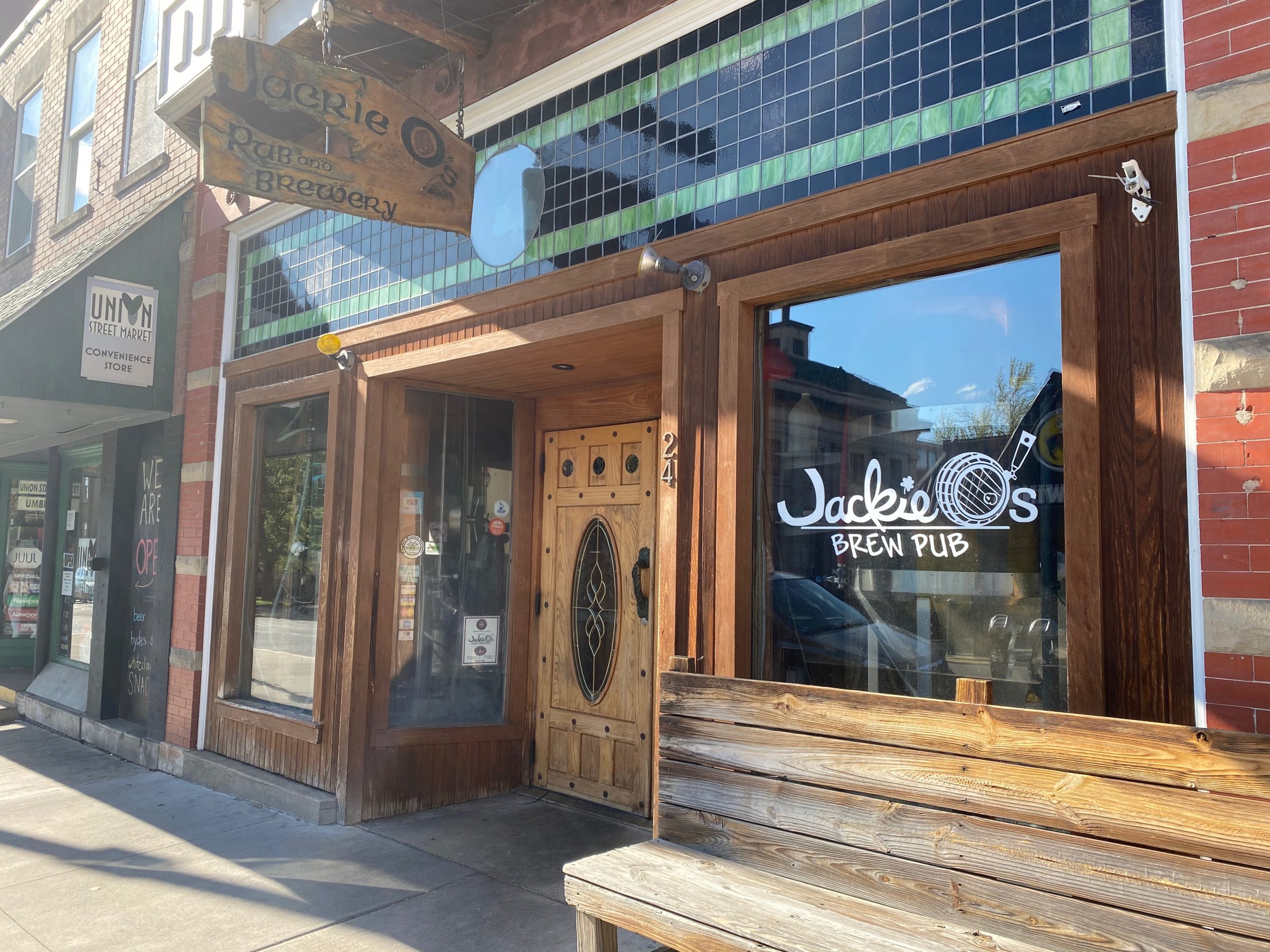
Other people like Art Oestrike think the impact will be more long-term and could change the way we interact with one another.
“Do we continue to go to bars as a society? Do we want to go to a crowded bar on St. Patrick’s day ever again?” he said. “Do we ever shake hands again? Do we hug again? Those are questions I have that I don’t know the answer to,” he added.
And then some, like Chris Pyle, think people will still be financially recovering long after the economy reopens and could change their spending habits.
“I don’t know how this is going to affect families and people that come out to buy speciality coffee drinks. It may mean that some people can’t come back to OU, some kids, enrollment might go down. It may mean that if kids do come back, they might not have as much money to go out and buy specialty drinks,” Pyle said.
With so many uncertainties as to when businesses will operate normally, Pyle said he’s working to be at peace if Donkey Coffee does not make it through.
“Some days I really stress out and other days I feel really at peace. And for me personally it’s my walk with God that helps me stay at peace. Because, you know, even if we lose everything and Donkey goes under and the building goes under, that happens to people and we need to prepared for it. So I need to be at peace with that regardless and that’s really hard, but also, I don’t know, it’s a good discipline to practice,” Pyle said.
Local Businesses at the Heart of the Athens Community
But despite the hardships, one thing business owners agree on is the overwhelming support of the Athens community and other businesses.
Chris Pyle said although all the uptown coffee shops compete for customers, they are now leaning on each other for support and to share resources.
“The uptown coffee shops, we’re all friends with each other,” he said. “We all talk to each other and we’re just trying to encourage each other. We’re competitors obviously, but we’re also friends and we’re not enemies of course.”
Shawn Hawks, the co-owner of Skin Hooked Tattoo in Athens said he is happy to have his business there.
“I learned, wow, you could really have the rug pulled out from under you, but the good thing about Athens County is, and the Athens community is, it’s always been a tight knit community,” Hawks said.
He said when the business had hard times after being broken into last year, the community stepped up.
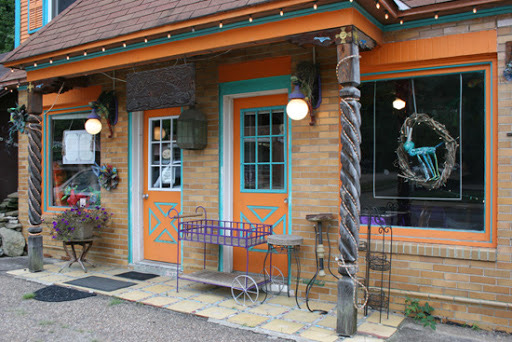
“Our loyal customers stepped up and helped us through some rough times when we had. And I can say that about Athens County – I’m glad to have my business there,” Hawks said.
Purple Chopstix, one of the longest standing restaurants in Athens, has also experienced this kind of support. Part-owner Aysha Fisher said she can’t wait to start serving the community again.
“We love Athens, this is our home. We were born and raised here along with my husband. You know, we love all of our other local businesses and restaurants and we hope everyone will be able to pull through this and recover,” Fisher said.
James Kisor, at Decorative Injections Tattoo, said in the meantime, he is looking for ways to give back to the community that has given him so much. He said he and his wife have been trying to do little things like sewing masks for their friends and family.
“We donated gloves, we took a big stock of our gloves and took it to the Health Department here,” he said. “I think a lot of it is feeling helpless. You want to feel like you’ve done a little part, hopefully that helps something or somebody.”

